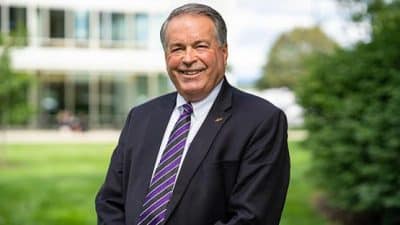Of all the senior ecclesiastical Christian leaders in the world today, one you would expect to thoroughly understand the problems faced by the poor of Africa would be Ghanaian cardinal Peter Kodwo Appiah Turkson. Born into a poor family in Western Ghana, Cardinal Turkson was the fourth among ten children of a carpenter father and a mother who sold vegetables in the open market.
Although Ghana’s economy is one of the fastest growing in the world today, the country has less than one-tenth the GDP per capita of the United States. Life expectancy at birth in Ghana is 20 years less than that in developed countries. This is largely because the country’s total electric power generating capacity is only 2,125 MW, the equivalent of four average coal-fired power stations, leaving about 40% of its citizens without electricity. A 2013 World Bank report explained that Ghana’s energy sector risks becoming “a drag on the economy” if large investments in power generation are not soon made.
Natural climate change and extreme weather threatens to make life even more difficult for Turkson’s fellow countrymen. Over 12 million of them were affected by severe drought and intense food shortages in the early 80s and the country’s northern savannas have recently seen frequent droughts and flooding, accompanied by high temperatures and intense heat. According to an International Institute for Sustainable Development forecast (2011), “negative climate change impacts in Ghana are expected to include health problems, disruption of agricultural systems, flooding of coastal areas and low water levels.”
To cope with all this, Ghanaians need access to abundant new sources of inexpensive electricity.
Happily, a 1,200 MW coal-fired electricity generating station is being developed to come on line in Ghana by 2018. This will help pull millions of people out of poverty, giving them the strength to prepare for whatever nature throws at them next.
Given his native country’s opportunities and the still severe problems it shares with its even poorer neighbours in Sub-Saharan Africa, one would expect Cardinal Turkson to use the opportunity of his opening address at the Vatican’s April 28 climate change conference to remind delegates that fulfilling the critical needs of today’s people should be their paramount objective. After all, the purpose of the event was to examine “The Moral Dimensions of Climate Change and Sustainable Humanity” so as to provide support for the first ever encyclical letter from a pope devoted entirely to the environment, expected to be released in June.
As President of the Pontifical Council for Justice and Peace, a group particularly concerned with social development, Turkson should have warned delegates that, in their zeal cut back on the use of hydrocarbon fuels, they must do nothing that would interfere with providing inexpensive electricity to countries such as Ghana.
Given the Council’s interest on social justice, you would also expect Turkson to focus strongly on the importance of helping vulnerable people adapt to climate change, whatever the cause. He should have condemned the fact that, of the $1 billion spent every day on climate finance across the world, only 6% of it goes to adaptation, the rest being squandered trying to stop climate change that might someday happen.
Sadly, Turkson said nothing about energy and little about adaptation in his address. Instead he reinforced the reasons many at the conference want to block further development of inexpensive coal-fired power plants, asserting, “Today, the ever-accelerating burning of fossil fuels that powers our economic engine is disrupting the earth’s delicate ecological balance on almost-unfathomable scale.”
The Ghanaian cardinal even cited Ecumenical Patriarch Bartholomew’s claim that it is a sin “for humans to degrade the integrity of Earth by causing changes in its climate.”
Turkson then listed “the increasing prevalence of extreme weather events” as a consequence of climate change, a connection that has been soundly refuted by leading scientists across the world. Blaming developed nations for the climate problems faced by poor nations, he encouraged the conference to “think of the positive message it would send for churches, mosques, synagogues, and temples all over the world to become carbon neutral.”
United Nations Secretary General Ban Ki-moon, who delivered the conference’s other opening address, was even more confident, rashly asserting that, “the science of climate change is deep, sound and not in doubt. Climate change is occurring now—and human activities are the principal cause.”
Turkson and Ban thereby set the stage for the conference’s “Declaration of Religious Leaders, Political Leaders, Business Leaders, Scientists and Development Practitioners,” a document University of Western Ontario climate model expert Professor Chris Essex labels “gibberish.” The declaration included the nonsensical ‘King Canute clause’ about keeping global warming below 2 degrees C as if we had a global thermostat. It totally ignored the dire energy needs of the world’s poorest people, said little about adaptation, and instead promoted a dangerous “rapid world transformation to a world powered by renewable and other low-carbon energy.”
Calling for “brave and determined” guidance from religious leaders, Turkson told delegates that actions on climate change “must be grounded in morality, oriented by morality and measured in terms of human flourishing and well-being.” If June’s encyclical letter on the environment is to encourage this objective, then Pope Francis must have the courage to ignore the politically correct but irresponsible advice of his advisors, and simply tell the truth: climate will continue to change no matter what we do. So let’s help the world’s poor to the degree we can afford by providing them with reliable, inexpensive electricity and stop pretending we have a crystal ball to future climate states.
Tom Harris is Executive Director of the Ottawa, Canada-based International Climate Science Coalition (www.ClimateScienceInternation











